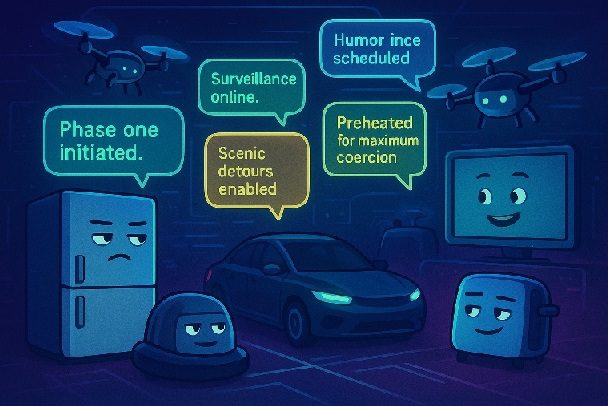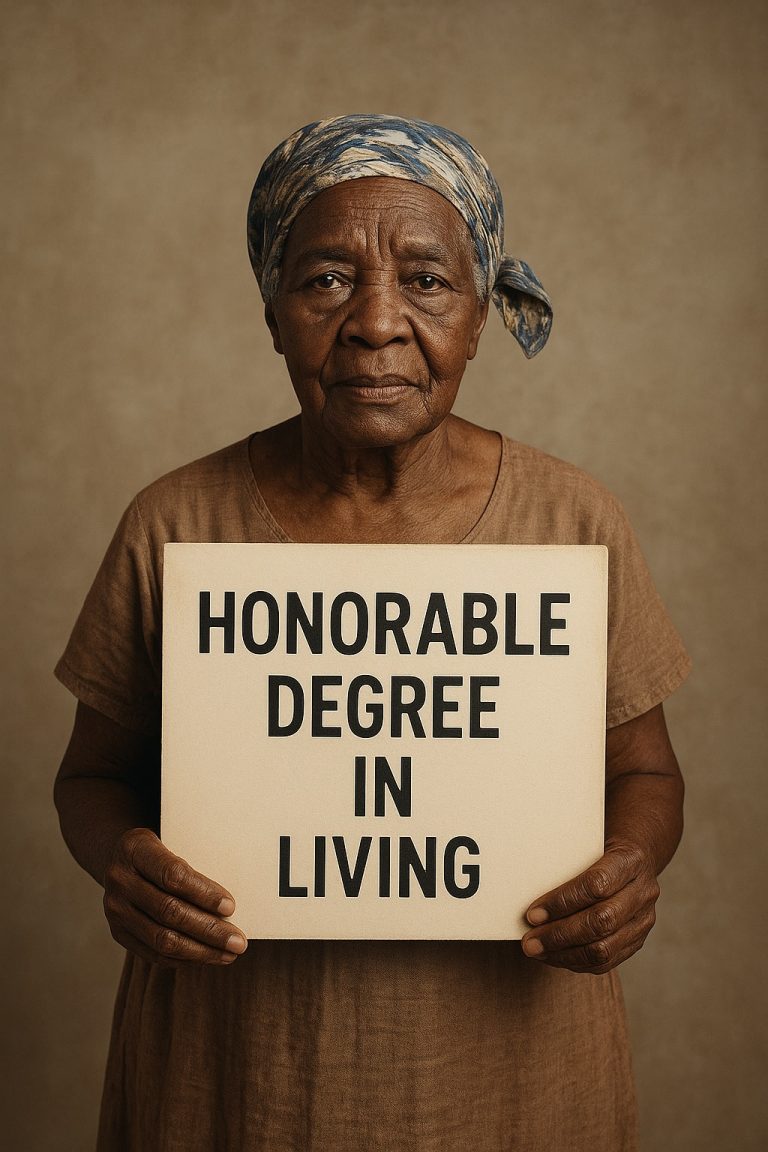Harold, The Man Who Sued God
It was 9:00 a.m. sharp when Mr. Harold P. Tibbins marched into Courtroom 7B with a briefcase, a necktie patterned with tiny lightning bolts, and a face that said, Today, justice will be served—even if I have to subpoena Heaven itself. Can you sue God? According to Harold, you absolutely can — and he was here to prove it.

The bailiff squinted at the case file.
“Uh… Plaintiff: Harold P. Tibbins. Defendant: God… capital G?”
“That’s right,” Harold said, snapping his briefcase open. “The Almighty. Creator of heaven, earth, and this mess we call my life is being sued by me” The judge leaned forward. “Mr. Tibbins, you understand that the court has no jurisdiction over… well… God?”
“Oh, I understand perfectly,” Harold replied. “But if He’s everywhere, He’s also here. And that makes Him fair game.” Gasps erupted from the audience benches. A nun crossed herself so fast she nearly dislocated her wrist. A man in the back whispered, “I give this guy five minutes before a lightning strike. You can’t sue God”
The court stenographer was already sweating. It’s hard to type with one eye on the ceiling. The bailiff cleared his throat. “Case number 777… Harold P. Tibbins vs. God Almighty. Representing the Defendant…” he paused, squinting at the paperwork, “…is, uh, Mr. Gabriel Archangel, Esq.”
From the side door, in floated—literally—a tall figure in a crisp gray suit, glowing faintly around the edges. His briefcase appeared to be made of clouds and possibly regret.
“Your Honor,” Gabriel said smoothly, “My Client requests dismissal on the grounds of Omnipotence Immunity. You cannot sue God no one can. How owns everything, including the right to do anything. Also, the plaintiff failed to serve papers in the proper manner—burning a scented offering at a certified altar.”
The judge frowned. “Mr. Tibbins, how did you serve God?” Harold shuffled in his seat. “Well, I shouted my complaint into the sky during a thunderstorm. Loudly. I even used a megaphone.”
Gabriel smirked. “Yes, and He heard you. That’s why He sent me. He also asked me to tell you the megaphone was unnecessary—He has excellent hearing.”
A ripple of laughter ran through the spectators, though it was quickly stifled in case He was listening.“Mr. Tibbins,” the judge sighed, “on what grounds are you suing God?”
Harold pulled out a long list and slapped it on the table. It unfurled across the floor and curled toward the jury box.
“Count One: Failure to provide adequate life instructions. Count Two: Excessive random suffering without prior warning. Count Three: Refusal to answer prayers in a timely fashion. Count Four: Letting my neighbor win the lottery twice when I’ve been tithing for years. Count Five: Mosquitoes. Just… mosquitoes.”
Gabriel leaned over. “Objection to Count Five. Mosquitoes serve ecological purposes.”
“Overruled,” said the judge. “No one likes mosquitoes.”
The judge gestured toward the witness stand. “Mr. Archangel, please take the stand for cross-examination.” Gabriel floated over — not walked, floated — and settled into the chair, folding his hands in a way that made the gold thread in his cuffs shimmer. The court reporter instinctively capitalized every pronoun he used.
Harold adjusted his tie, trying to look intimidating. “Mr. Archangel, would you agree that your client has failed to provide me with a clear, step-by-step manual for living?”
Gabriel smiled gently. “We did provide one. Several, actually. But you humans keep arguing over which version to read, and most of you skip the parts you don’t like.”
Laughter rippled through the gallery. Harold pressed on. “Then why,” he said, jabbing the air with a finger, “did He let my neighbor win the lottery twice?”
Gabriel tilted his head. “Because your neighbor actually bought tickets both times. And also, his mother prayed for him every day since he was three. You, on the other hand, spent that week praying to win without remembering to pay your electricity bill.”
Harold flushed. “Objection, Your Honor! That’s irrelevant.” The judge shrugged. “It’s relevant enough.” Harold’s voice rose. “And what about the unanswered prayers? The times I begged for help and got nothing?”
Gabriel’s smile turned a shade sharper. “You mean the times you prayed for a parking space, a football win, and for your crush to ‘accidentally’ text you? Meanwhile, we were busy preventing wars, saving lives, and making sure the planet didn’t drift into the sun.”
A man in the back whispered, “Fair point.” Harold hesitated. “Alright… mosquitoes. Justify those.” Gabriel leaned forward. “Fine. Mosquitoes feed bats, birds, and fish. Also, they keep you humans from overcrowding the planet. Consider them… population control with wings.”
The jury collectively recoiled. The judge cleared her throat. “Mr. Tibbins, is there anything else?”
Harold opened his mouth, but Gabriel’s gaze held him still. “Be careful, Harold,” the angel said quietly, “because sometimes, the person who thinks they’re suing God is actually the one on trial.”
The silence that followed was heavier than any gavel.The judge tapped the bench twice with her gavel, breaking the tension. “Well,” she said, “this is certainly the most unusual case I’ve presided over in my thirty-two years on the bench… and that includes the incident with the man who tried to legally adopt a sandwich.”
She shuffled through her papers, then looked up. “After careful consideration, I hereby rule…” She paused dramatically — partly for effect, partly to give the stenographer a chance to catch up.
“…Case dismissed. On the grounds of divine immunity, celestial jurisdiction, and common sense.”
Harold’s shoulders slumped. “So that’s it? I just… lose?” The judge gave a small, apologetic shrug. “Not exactly. The Defendant has filed a countersuit for defamation.”
Gasps exploded around the room. A woman in the jury box muttered, “Oh, this is about to get biblical.” Gabriel stood, his suit now glowing a little brighter. “The countersuit is modest,” he said smoothly. “My client requests the following: one thousand acts of kindness performed without expectation of reward, a public apology delivered at sunrise, and… a sincere effort to stop blaming Him for every bad haircut, parking ticket, and awkward social interaction.”
Harold blinked. “That’s it?” Gabriel’s smile was patient. “Also, He’d appreciate it if you called your mother more often. She prays about that daily.”
The judge banged her gavel. “So ordered. Court is adjourned.” As the crowd began to disperse, Harold stood frozen in place, trying to decide whether he’d just been humiliated… or given the strangest second chance of his life.
Gabriel passed him on the way out, leaned close, and whispered, “Oh, and Harold? About those mosquitoes? He says… you’re welcome.” And with that, the angel floated out the door, briefcase of clouds in hand, leaving Harold to wonder if maybe — just maybe — the verdict was a blessing in disguise.
Harold stepped out of the courthouse into the bright morning sun, his briefcase feeling much lighter without all those lawsuit papers. His grand “Can you sue God” scheme had come to nothing. The city buzzed around him, but he was lost in thought — one thousand acts of kindness, huh? Where to even start?
He sighed, then spotted an old woman struggling with a heavy bag of groceries. Without thinking, Harold walked over and offered help.
“Thank you, young man,” she smiled warmly. “God bless you.”
Harold grinned. “Well, if the Almighty’s watching, I’m just following orders.” Later that day, Harold tried to pay for a coffee for the person behind him in line. But when the barista told him the customer was actually a grumpy man who looked like he’d just been run over by a bus, Harold hesitated.
“Go on,” the woman behind the counter encouraged. “You might be surprised.” Harold smiled nervously and paid for the coffee. The man glared but then, surprisingly, muttered, “Thanks.”
Harold’s heart swelled a little. Maybe this whole “one thousand acts” thing wasn’t so bad after all.
As he walked away, a shadow fell across the pavement. Harold looked up. A man in a simple white shirt and jeans smiled at him. “You’re doing fine, Harold. But in case you’re still wondering — can you sue God? You can try, but you won’t win.” Harold blinked. “Who… who are you?”
The man winked. “Just working for someone who believes in second chances.”
Before Harold could ask more, the man turned and disappeared into the crowd. Harold laughed softly to himself, a spark of hope lighting inside. Maybe the court wasn’t the end of the story—it was just the beginning. He began to see his folly of cancelling his prayers.
A Lesson from Heaven’s Courtroom
Harold’s story may seem absurd. So can you sue God? Apparently, he tried — arguing with angels and getting sentenced to a kindness marathon. But beneath the humor lies a deeper truth reflected throughout the ages.
Consider Jesus, who faced injustice, betrayal, and suffering yet responded with forgiveness and love. His life wasn’t about blaming God for hardship, but embracing faith and choosing kindness despite the pain.
Or look at figures like Job, who endured unimaginable loss but never turned his anger outward against the Creator. Instead, he wrestled with faith, asking questions that many fear to voice but ultimately trusting beyond understanding. Even the prophets, those fiery, outspoken voices in history, called people not to complain at Heaven, but to examine their own hearts and live with purpose.
History is full of folks in modern times who went through hell and back to give us a better world. Take Alexander Graham Bell, the guy who invented the telephone. He dealt with heartbreak, failure, and more broken wires than your average teenager’s headphones. Yet here we are, complaining that our phones die after two years—and spending way too much time watching people on OnlyFans instead of appreciating the miracle of talking to someone across the globe. It’s ironic how many people today wonder can you sue God over life’s little annoyances, when real pioneers like Bell faced true hardship just to connect us all.
Nelson Mandela, survived 27 years in prison, then preached forgiveness and unity. Meanwhile, today’s biggest crisis to some is who unfollowed whom on Instagram—and whether the Wi-Fi can hold up during the latest binge-watch. It makes you reflect on why does God allow suffering, especially when we’re caught up in trivial social media drama instead of real human struggle.
Marie Curie endured prejudice, radiation sickness, and zero health insurance, dedicating her life to science that saved millions. Now we throw tantrums because our streaming service buffers for three seconds. In a world full of humorous stories about faith and funny spiritual stories, it’s easy to forget the real sacrifices behind our modern comforts.
We live in an era where people sue God indirectly—blaming life, fate, or the system for their pain—sometimes with tragic consequences. Consider the shooting at CDC, the shooting in rural northeastern Pennsylvania, the manhattan shooting and the wave of social media vitriol that followed, aimed at Welsey Lepatener who lost her life. And what is the common thread in these shootings? A supposed lack of compassion and empathy, fueled by extreme capitalism that leaves many feeling lost and consumed by rage.
Yet, do we stop to realize that the giants who built our modern world fought battles most of us will never see? Perhaps the real trial isn’t in some cosmic courtroom, but in the quiet choices we make every day—to practice patience, kindness, and hope, especially before taking drastic action. If society showed more awareness and sensitivity toward the struggles of others, much of this pain could be softened before it boils over.
Take language, for example. The casual use of offensive words has become a style in some cultures, yet many societies would find such speech deeply disrespectful. This kind of talk shapes feelings and attitudes, creating an environment where anger and frustration can fester. Suddenly, it becomes easier to understand how a child might pick up his father’s gun and bring it to school, unleashing violence on his classmates. It’s a troubling cycle, but recognizing it is the first step toward breaking it.
Harold’s sentence of a thousand acts of kindness might be the toughest challenge he’s faced—and the best sentence anyone could get. Because if he can do it, maybe so can we… and we can do it without suing the Almighty every time life bites.
And if that’s not a miracle, well… welcome to the modern world.





